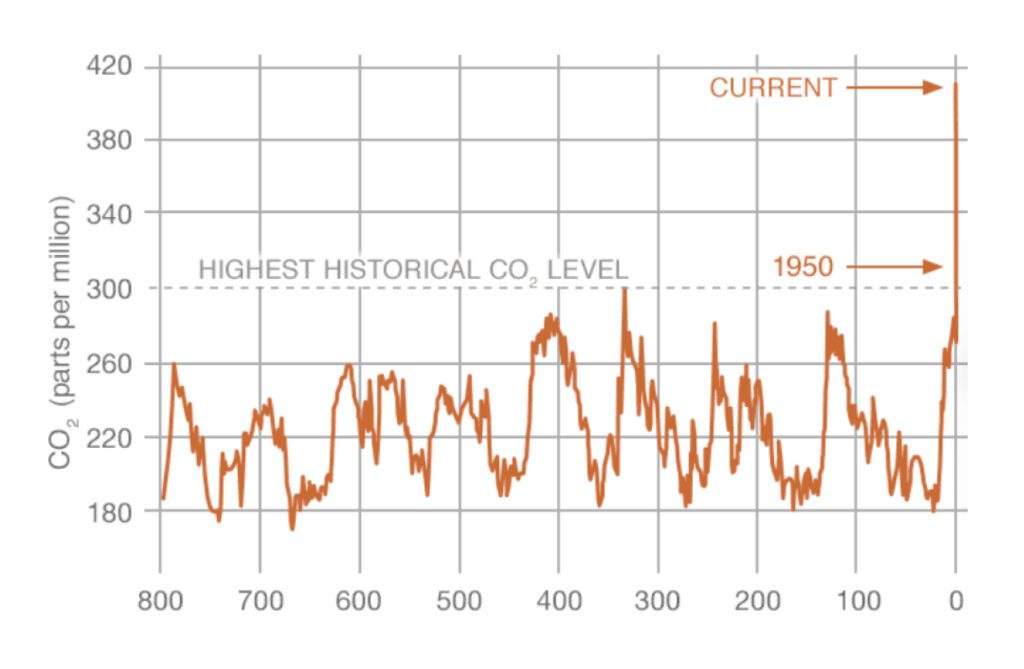The future of life on Earth faces two big problems.
Problem 1
Excess carbon dioxide (CO₂) in the atmosphere is causing global warming. And while we need to stop producing it, we also need to remove the CO₂ that we have emitted since the start of the industrial revolution.
Historic CO₂ levels are at the highest they have been in 800,000 years, and are already causing a dramatic increase in extreme weather and pushing our planet towards some potentially catastrophic tipping points.
To date, over 1 trillion tonnes of historical CO₂ exist, pushing the parts per million (PPM) of CO₂ in the atmosphere from 280 ppm to 420 ppm.

But removing historic CO₂ is half the problem.
Problem 2
We need to transition to a green energy solution.
And that will require a gargantuan and collective humanitarian effort, because there is currently a shortage of materials needed for this transition. Nickel is crucial in the physical infrastructure used to build the future, making up 8% of standard stainless steel. It is also of major use in battery cathodes where it has the highest energy density per kilogram and helps prevent battery degradation. Demand is high, and we need to double nickel production in the next 20 years to keep up.
“The data shows a looming mismatch between the world’s climate ambitions and the availability of critical minerals that are essential to realizing those ambitions”
There is a forecasted shortage of nickel as soon as 2024.
Without ample supply of nickel, we cannot build out the future as it is currently modelled. Traditional mines can take up to 10 years to permit and the proposed pipeline of production is not enough to meet predicted demand.

Ordinary nickel mining can also be polluting and destructive. Over the last century, most of the easily and safely mined nickel deposits have been exhausted. Mining companies have resorted to becoming more destructive, venturing further into island forests and are currently proposing to scour the seabed for nickel nodules.
What the experts are saying
We collaborate with scientists all over the world to advance knowledge in environmental issues. Here is our selection of the latest news and research from our colleagues in climate science.